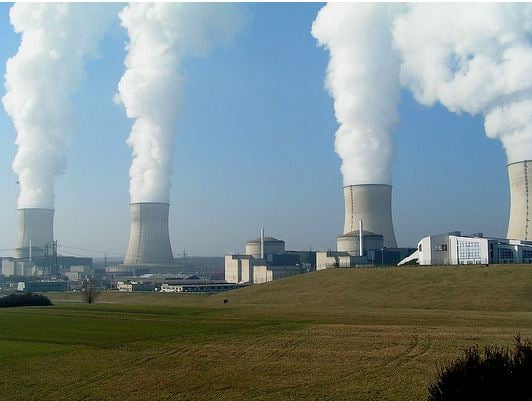Energy
Japan to Shut Down Nukes by 2040 (RDS-A, CVX, COP, KYO, FSLR, SPWR)
Published:
Last Updated:

Japan trails only the United States and France in nuclear power generation capacity, and replacing the country’s 49,000-megawatt nuclear generating capacity could mean a big boost for both green energy and natural gas suppliers. A possible downside is that Japan would increase imports of crude oil, which it also has been burning to generate electricity to replace production from Fukushima.
According to the Financial Times, Japan’s remaining 50 nuclear plants will be shut down once they reach an operating lifetime of 40 years and no new nukes will be constructed. The last plants were built in 2006.
Japan’s nuclear plants provided about 30% of the country’s electricity and the country had planned to raise that to 50% by 2030. Today only one of the country’s nukes is still in operation and the rest were not restarted following shutdowns for safety inspections. That was not because the plants failed the inspections, but because the government responded to public demands to keep the nukes closed.
Japan is the world’s largest importer of natural gas, virtually all of it in the form of liquid natural gas (LNG.) The large LNG projects in the Middle East, South Asia and Australia have already gotten a boost, and that boost will last longer and may get larger for big LNG producers like Royal Dutch Shell PLC (NYSE: RDS-A) (NYSE: RDS-B), Chevron Corp. (NYSE: CVX) and ConocoPhillips (NYSE: COP).
The impact on solar makers could also be profound. Japan currently has about 7% of the world’s total solar power capacity, and most analysts expect that number to rise significantly. Japan boosted its feed-in tariffs for solar power to $0.53 per kilowatt-hour in June over a period lasting for the next 20 years.
Japan’s Sharp Corp. is the world’s largest producer of solar PV panels, and with Kyocera Corp. (NYSE: KYO) poses a significant obstacle to foreign solar makers like First Solar Inc. (NASDAQ: FSLR) and SunPower Corp. (NASDAQ: SPWR).
Paul Ausick
A financial advisor can help you understand the advantages and disadvantages of investment properties. Finding a qualified financial advisor doesn’t have to be hard. SmartAsset’s free tool matches you with up to three financial advisors who serve your area, and you can interview your advisor matches at no cost to decide which one is right for you. If you’re ready to find an advisor who can help you achieve your financial goals, get started now.
Investing in real estate can diversify your portfolio. But expanding your horizons may add additional costs. If you’re an investor looking to minimize expenses, consider checking out online brokerages. They often offer low investment fees, helping you maximize your profit.
Thank you for reading! Have some feedback for us?
Contact the 24/7 Wall St. editorial team.